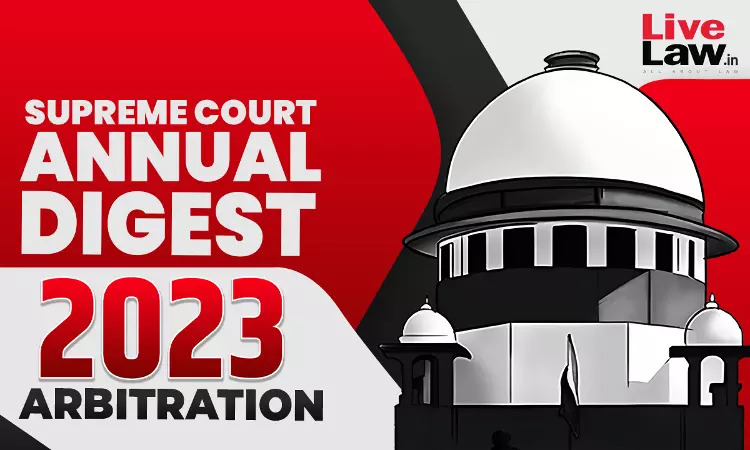- Home
- /
- Supreme court
- /
- Supreme Court Annual Digest 2023 On...
Supreme Court Annual Digest 2023 On Arbitration
LIVELAW NEWS NETWORK
30 Dec 2023 12:50 PM IST
12 months' time limit under Section 29A Arbitration Act not applicable to international commercial arbitration. TATA Sons Pvt. Ltd. v. Siva Industries and Holdings Ltd., 2023 LiveLaw (SC) 39 : 2023 INSC 13 : (2023) 5 SCC 4212015 Arbitration Amendment not applicable though S.11 application was filed after it, if arbitration notice was issued pre-amendment. Shree Vishnu Constructions v. Engineer...
Next Story



